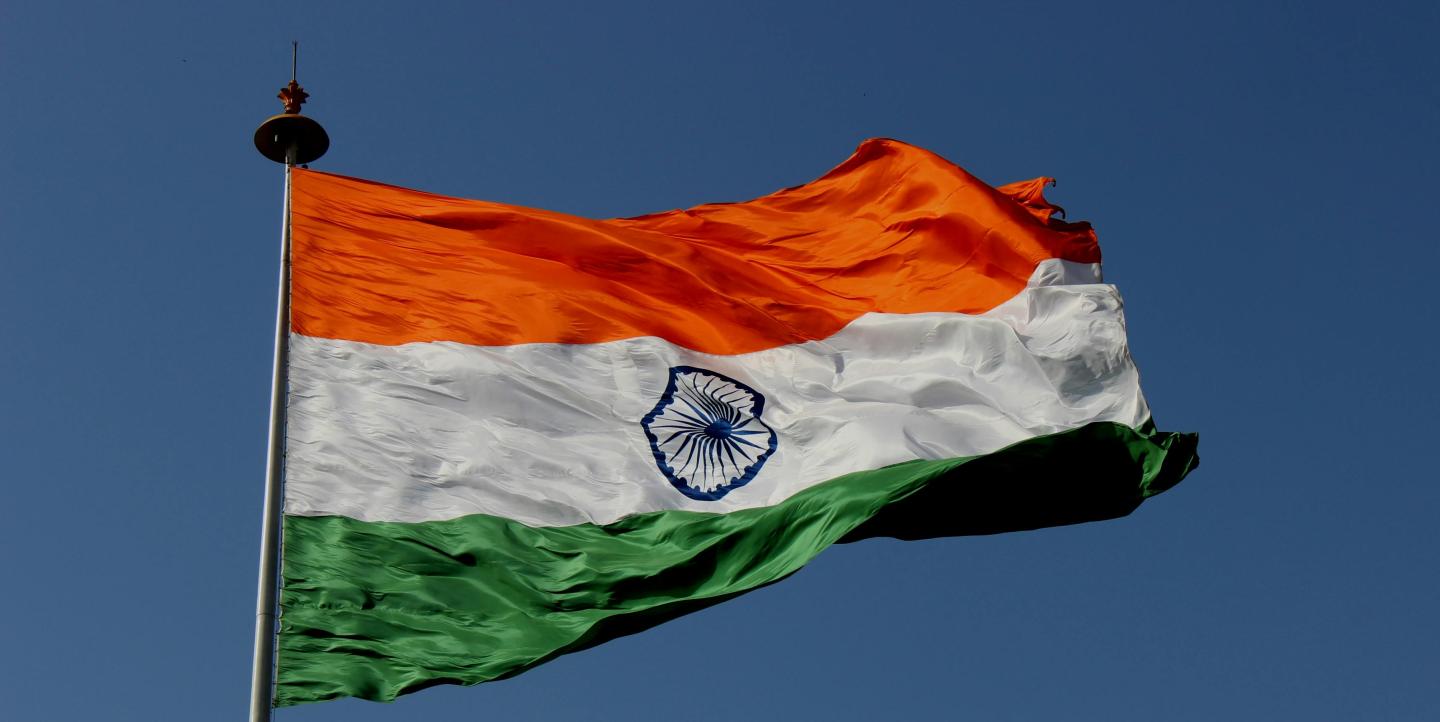As India carries out the world’s largest-ever election this year, an alarming trend must not go overlooked: the ruling Bharatiya Janata Party (BJP) is weaponizing legislation to go after journalists critical of their policies.
Since 2014, the government has charged at least 15 journalists under the stringent anti-terrorism law, the Unlawful Activities (Prevention) Act (UAPA). During this timeframe, 36 journalists have been imprisoned in the country.
The jailings of journalists under the UAPA are indicative of the greater crackdown on press freedom in India under the BJP.
With polls predicting a victory for incumbent Prime Minister Narendra Modi and the BJP, experts warn that the Modi administration will further weaponize the UAPA and other legislation to target independent media in the election’s aftermath.
Raids on media outlets
In March, Indian police filed charges against NewsClick, an independent news site known for its critical stance toward the government, and its founder Prabir Purkayastha, alleging that the outlet received foreign money to publish pro-China propaganda.
The charges followed an October raid by the Delhi Special Police of NewsClick’s offices and the homes of several of its journalists and writers. Purkayastha was arrested at the time under the UAPA, which allows for detention without trial or charge for up to 180 days.
Purkayastha joins at least eight other journalists currently incarcerated under the UAPA, according to The Free Speech Collective, which monitors and documents violations of the right to free speech in India. Dozens of journalists have also been booked under other criminal charges.
“What astonished me most was the fact that personal electronic devices, including laptops, mobile phones, pen drives and hard drives, belonging to about 90 individuals, most of them journalists, have been confiscated by the police and not yet returned to them, including mine,” said Paranjoy Guha Thakurta, a filmmaker and journalist at NewsClick. While Thakurta's devices were returned on the day of the raid, the devices of almost all the others remain with the police.
Thakurta, who was also targeted in the October police raid, is best known for his investigations into the businesses of billionaire tycoon Gautam Adani, who has close ties to Prime Minister Modi. Adani has filed several defamation suits against Thakurta.
Following the raids of NewsClick’s offices, Thakurta said the country’s Income Tax Department froze their bank accounts, preventing the outlet from paying its 45 employees and 15 consultants, including Thakurta, for five months.
In February 2023, a similar raid targeted the BBC’s offices in New Delhi and Mumbai, three weeks after the broadcaster released a documentary critical of Modi’s role in the 2002 Gujarat riots which resulted in the deaths of more than 1,000 people, mostly Muslims. The BJP–led government subsequently banned the documentary from airing in India.
“This is done to send out a chilling message to other independent media houses,” Thakurta said.
Weaponization of laws
The UAPA law has been on the books for over 50 years, but in 2019 the BJP amended the law, granting authorities the ability to declare an individual a “terrorist” before any crime is proven in court. A 2022 amendment to the Prevention of Money–Laundering Act is another example of legislation being weaponized against journalists, said Thakurta.
“These laws have been on the statute books for some time now,” said Thakurta. “But the manner in which they have been amended in recent times has turned these two laws into weapons that are being randomly used against journalists, political opponents and social activists.”
Seizures of journalists’ electronics under the UAPA law present another concern, explained Kunal Majumder, the India representative for the Committee to Protect Journalists. “For law enforcement agencies to have access to journalists’ information is also a clear threat to their digital privacy,” he said. “The practice of confiscating electronic devices increases the risk of false evidence potentially being planted against journalists, which impacts their ability to carry out their work without fear of reprisal.”
Consequences for journalists
The raids and arrests have left many Indian journalists debating whether to continue reporting in the current political climate.
“I am not sure how to proceed ahead. As the sole breadwinner of my family, losing my job after being incarcerated caused significant financial strain,” said Siddique Kappan, an independent journalist who was detained under the UAPA in October 2020 while reporting on a case involving the gang rape and killing of a young Dalit woman in Uttar Pradesh, India’s most populous state. Kappan was arrested for conspiracy to incite violence and sedition, and later hit with money laundering charges, all accusations that he denies.
In February 2021, the Supreme Court granted Kappan five days’ interim bail to visit his ailing mother, on the condition that he would not meet with anyone other than his relatives and his mother’s doctors. However, he was unable to attend his mother’s last rites when she passed away later that same year in June. “I am still unable to overcome the emotional toll of losing my mother while I was in jail,” he said.
The UAPA makes it difficult for journalists to obtain bail, noted Majumder: “With provisions allowing for up to six months of custody, which can be extended, journalists often find themselves trapped in legal limbo upon arrest.”
Kappan was released from prison in February 2023 after spending 846 days behind bars. Despite his professional network, he has been struggling to find work. “I believe my experience is an example of the dangerous trend of silencing dissent through baseless accusations in today’s India,” Kappan said.
Challenges ahead
For independent media outlets and journalists striving to keep reporting in India, challenging years may lie ahead, said investigative journalist Josy Joseph.
A lack of accountability and scrutiny is enabling an environment where government agencies such as the Enforcement Directorate, Central Bureau of Investigation and Income Tax Department are empowered to harass, intimidate and arrest journalists.
“Only during the declared emergency [from 1975 to 1977] did we witness journalists being targeted like this,” Joseph said. “The scale at which the present government is targeting journalists is certainly smaller [than during the emergency], but it is repetitive and unprecedented for a democratic country like India.”
He added a cautionary note: “If Modi returns to power, independent media outlets will have to come together in order to continue their free and critical reporting.”
Photo by Studio Art Smile via Pexels.


